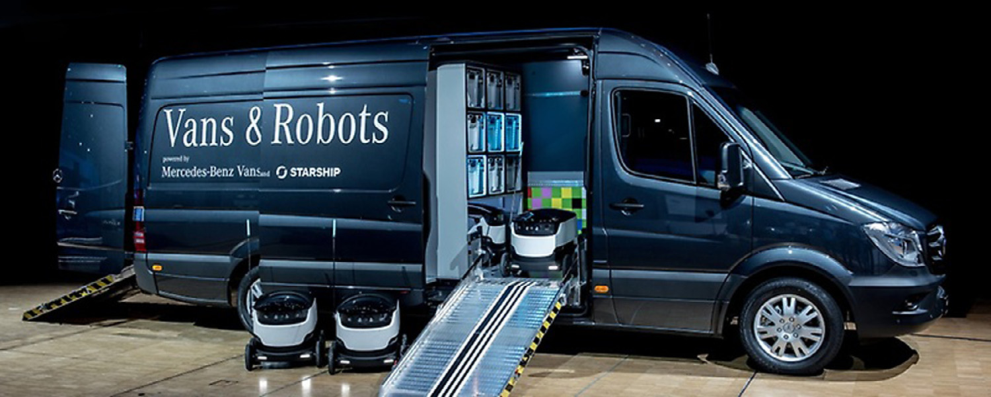This webinar showcases the impacts of cooperative, connected, and automated mobility (CCAM) on two case studies for freight transport: Automated delivery & automated consolidation and Platooning on highway bridges, presented by the Austrian institute of Technology (AIT).
First, we consider the future urban delivery system for parcels via a robo-van concept. Automated delivery vans act as mobile hubs and carry small autonomous delivery robots that swarm out to perform the delivery to the households for the last 200m. In this concept, a further consolidation step through city-hubs can help to reduce the urban freight mileage. In a case study, we showcase the assessment approach and the transferability of the methodology to multiple cities.
The second case study is on platooning on highway bridges. As automation in freight transport increases, we look at the vertical and horizontal traffic load effects on bridges caused by truck platooning. Especially old bridges were built when platoons did not exist. Soon, when platooning can increase the traffic density heavily, structural weakness may cause severe damage to these bridges and the consequences would be disastrous. In this case study, we assess the costs and effects of possible measures for bridges, namely structural strengthening, and access control.
The webinar will include a presentation given by ALICE (Alliance for Logistics Innovation through Collaboration in Europe) to provide an overview of the main trends and challenges for freight and logistics and how CCAM solutions fit in the broader context; which are the expectations, and which are the key EU CCAM for freight initiatives. ALICE will also share its views on the future of automated delivery and platooning on highway bridges.
Join us online to get informed on the future of automated freight delivery and its impacts on mobility and our daily lives!
Registration
Date & time: 31 January 2022 – 10:00-11:30
Registration >>


